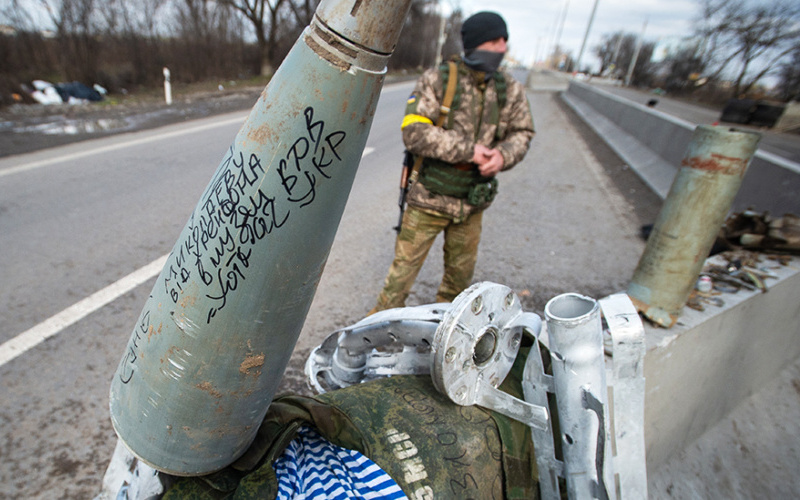Photo:BBC
As the US confirmed the supply of cluster munitions to Ukraine, I joined British and Indian outlets to analyze the military and political dynamics and to consider the significance for the Ukrainian counter-offensive against the Russian invasion.
Listen to BBC Radio Scotland from 11:14
Alongside Dr Patrick Bury of the University of Bath, I evaluate the discussions leading up to the American decision, with Ukraine making a series of commitment over the use of cluster munitions.
We set the development in the broader context of the counter-offensive, assessing the likely Ukraine advance while reminding the audience, “It’s not a sprint but a marathon.”
Ukraine has given assurances that these weapons will not be used where there are civilians in the vicinity, in other words where there are only military targets.
The failure rate of the cluster munitions has decreased, and that reduces the number of unexploded bomblets. And expect significant support for Ukrainian de-mining operations after the conflict is over.
Watch WION News
Before confirmation of the Biden Administration’s decision, I spoke on Friday morning about the two key factors.
First, it is against international law to target civilians with these munitions, something which Russia has done during its invasion. Ukraine has to give assurances that these cluster munitions will be used exclusively on Russian military personnel.
The second issue is that of unexploded munitions left behind after a conflict, threatening civilians. If Ukraine gets these, they will have to ensure that civilians are not endangered.
Given that many of the areas where Russia has built up its defenses are largely depopulated, I think the risk to civilians is lower than in previous case like Yemen, Afghanistan, Iraq, or Syria.
The US is expected to provide cluster munitions to Ukraine.
Why are cluster bombs controversial?@MollyGambhir talks to Scott Lucas (@ScottLucas_EA), Professor, Clinton Institute, University College Dublin, for insights
Watch more: https://t.co/AXC5qRuO3J#UkraineRussiaWar pic.twitter.com/tDB27S9Olf
— WION (@WIONews) July 7, 2023


Trackbacks/Pingbacks